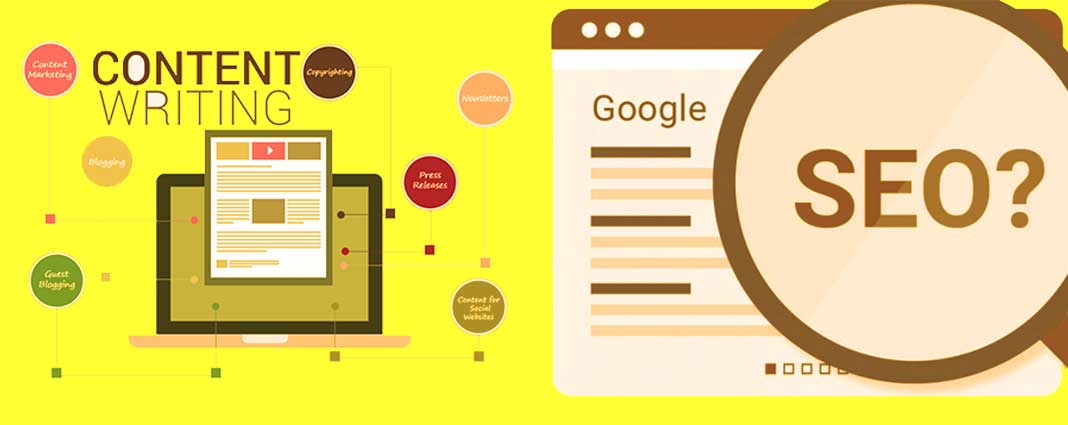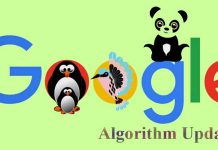SEO and Content Marketing are the two crucial elements to build your brands and businesses in the realm of Digital Marketing. They are closely related and work hand in glove to bring effective results to your website. Both the strategies are to be maintained in equilibrium to build brand trust and achieve the trustworthiness of the search engines and customers.
When executed with proper strategy, they take your business a notch higher and place your website in the top search results pages. But SEO and Content Marketing are not the same, and there is the difference one must carefully understand. Content Marketing is a part of SEO that helps to reach optimization by attracting links to your website. Content marketing improves credibility and authority for a business and thus ranks better.
SEO and Content Marketing differ in their functionalities. SEO is more of a technical side that helps attain top rankings in search engines. Content Marketing is the creative side to impress customers and get more exposure to your business. The appropriate mix of both strategies is required to secure higher rankings, enhance visibility, and build reliability for your website.
It is essential to comprehend them individually to get a perfect picture of their framework and benefits to leave a long-lasting impression in digital marketing. Please read further as we try to unfold the full dynamics of SEO and Content Marketing separately?
What Is Search Engine Optimization (SEO)?
Search Engine Optimization, in short, SEO, improves the web traffic to your website or web pages from search engines to rank higher. To put it in simple terms, SEO is a set of tactics that increase your site’s visibility when people look or search for services or products related to your niche in search engines like Google, Bing, etc. When strategically executed, SEO helps your website appear in the top search results pages of search engines.
At the basic, SEO means to fulfil specific parameters of search engines like Google to decide whether to include that page in its top ten results. Google indexes the web page of your website considering the technical configuration, the time taken to load a page, image sizes etc., to create an SEO friendly website, you need to make it easy for the search engine crawlers to read as many pages as possible on your website to index them in their top search results.
There are two fundamental ways to optimize the web pages of your website or drive quality traffic to your site. They are on-page SEO factors and off-page SEO factors.
On-Page Search Engine Optimization
On-page SEO or On-site SEO is optimizing web pages for relevant keywords to increase visibility and web traffic. Google’s search algorithm includes many on-site elements such as title tags, meta descriptions, inbound links, etc. On-page SEO is the crucial factor for Google to understand your website better and improve rankings to drive organic traffic. On-page SEO anchors on specific URLs.
Title Tag
The Title tag is an HTML tag, also known as meta tile, that is present in the head section of a web page, and it must include the main keyword. It acts as the main title of that web page appearing on the search engine results pages.
Headings
Headings or headlines are the compelling elements where the keywords are included. Interesting headings can easily buy you a good number of clicks.
Meta Description
Meta descriptions or Meta tags play a prominent role in optimization and are found beneath the title tag. They give a brief description in around 100 words that say about the content on that web page.
Structured Data
Structured data, also known as Schema Markup, helps the search engines understand the content better. It improves the user experience.
URLs
URL is the address or the location of the web page present on your website. URL appears on the address bar of your web browser. Usage of short and descriptive URLs is convincing and including main keywords is ideal.
Page Speed
Page speed or site speed calculates the amount of time it takes for a web page to load. The faster the loading speed, the better the user experience, which leads to higher rankings.
Internal Links
An internal link is a type of hyperlink that links two web pages on the same website. Users navigate through your website with the help of internal links to find their desired content. Relevant internal links make the users stay on your website for a more extended period and are essential for SEO.
Mobile User Experience
Mobile user experience is another factor in optimizing your website to give a user-friendly experience and ensure that your website functions correctly and meets the users’ requirements. The mobile version of your website is a crucial factor for indexing and ranking on SERP.
Also Read: 7 Link Building Strategies That Work For Agencies In 2021
Off-Page Search Engine Optimization
Off-page SEO or Off-site SEO refers to the activities outside of your website to improve your rankings in the search engine results pages. Off-page SEO contributes to 50% of the ranking factors. It is challenging to handle Off-site SEO factors as they include other websites to mention your brand and link to your web pages. Good off-page optimization is essential as it improves the trustworthiness, authority and relevance of your website.
Backlinks
Backlinks refer to linking other websites to the web pages on your website and vice versa. The more the number and quality of the backlinks, the more your website receives organic traffic.
Brand Mentions
Brand Mentions are the unlinked mentions of your brands, products or businesses on other websites. They help to build the trust and authority of your website.
Social Media Shares
Social media share is another off-page SEO element to gain more backlinks to your website. This refers to the content being shared on many social media handles like Facebook, Pinterest, Instagram, Linked In, Twitter, etc.
Page Authority
Page authority is a score ranging from 1 to 100 that anticipates the ability of a specific page to rank on SERPs. The greater the score, the better the ability to organize. Moz develops this.
Domain Authority
Domain authority is a metric ranging from 1 to 100 that tells how likely a website is to rank in search engine results pages. Obviously, the higher the domain authority, the greater is the rank. Moz also develops this algorithm.
What Are The Benefits Of SEO?
Search Engine Optimized websites have many benefits such as,
- Rank higher in Google
- Reach target audience
- Get more organic web traffic
- Offer more revenue
- Increase trust and authority
- Long-term results
- Improve search visibility
Also Read: Top 7 SERP Tracking Tools To Use In 2021
What Is Content Marketing?
Content Marketing is one of the digital marketing strategies that focus on creating, publishing, and promoting high-value content to the targeted audience. It is not intended to advertise directly but to stimulate interest in the public towards the brand products and services available online. Its main objective is to build a relationship with the customers to get interested in their business.
Several types of content marketing such as blogging, emails, e-books, infographics, podcasts, banners, case studies and many others can increase brand awareness. If content marketing is done with expertise and strategy, it helps you to improve brand trust and authority.
Types Of Content Marketing
Blogging
Blogging is an essential content marketing strategy as new and fresh blog posts or articles published on your website keep the visitors engaged. Doting Word Solutions offer blogger outreach services to small, medium and large scale business organizations
Emails
This is an email marketing campaign through which you send your latest articles or a commercial message to the people on your mail list.
E-books
E-books are the latest and popular content marketing tactic as they are a medium to simplify complex ideas into easily understandable and appealing formats. Thus, E-books help to enhance your reputation, establish your authority and generate new leads.
Podcasts
Podcasting is a new dimension in the content marketing strategy and is proven effective in reaching niche targeted audiences. They give value to the listeners, and the listeners become familiar with your business. Regular posting of informative and educational podcasts develops brand trust and builds your audience.
Infographics
Infographics is a go-to option in visual content marketing as they take your business to a whole new level. Well-designed infographics improve brand visibility and recognition. People love to share infographics as they give an overall view of your brand or business.
Videos
Posting quality videos on video streaming platforms like Youtube, Vimeo, and Dailymotion helps brand expansion and recognition. It also helps to educate your audience on a topic and show your expertise on the subject.
Case Studies
Case Studies give in-depth knowledge and investigations about the situations or individuals faced by marketers and the results obtained. By sharing the collected data with your customers, confirm that you react and reach out to the customer queries.
User-generated material like comments and reviews can also be used. In recent times, the focus has been on informative and lengthy content that effectively features various problems’ causes and solutions.
Benefits Of Content Marketing
Content Marketing is helpful in many ways like the ones given below.
- Spreads brand awareness
- Builds customer relationships
- Drives potential traffic
- Generates social shares and backlinks
- Increases revenue
- Enhances accessibility for larger groups
- Better conversion rates
SEO VS Content Marketing
From the detailed explanation given above, SEO is a technical process optimizing the web page of a website to drive more organic traffic. In contrast, content marketing is a theoretical process focused on creating valuable, informative and valuable content to get customers to the website or make deals.
SEO emphasizes meeting the demands of search engines and focuses on many factors like website design, structure, user experience, proper titles, URLs, descriptions and many more. Content Marketing deals with creating helpful content, presenting it, and publishing it online to reach the target audience.
How Is SEO And Content Marketing Related?
Content Marketing is a part of SEO, and one cannot thrive without the other. They overlap to a significant extent. They work hand in hand to generate fantastic results. SEO prepares your website readable for search engines and users. When valuable content is published, search engines recognize it and index it.
Gradually this will generate organic traffic, and further, you can use informative and great content on your website to reach a wider audience and make them into potential customers. Great content will also drive possible backlinks from other websites, which operate more traffic and build authority.
Let’s Conclude SEO VS Content Marketing
From the above article, it can be concluded that instead of looking over SEO and Content Marketing separately, it is better to focus on doing these work together. You need to devise a good SEO and viable content marketing strategy to build trust, authority and credibility of your brand or business online. Over a period, SEO and great content will increase and establish your domain authority for the long term.




